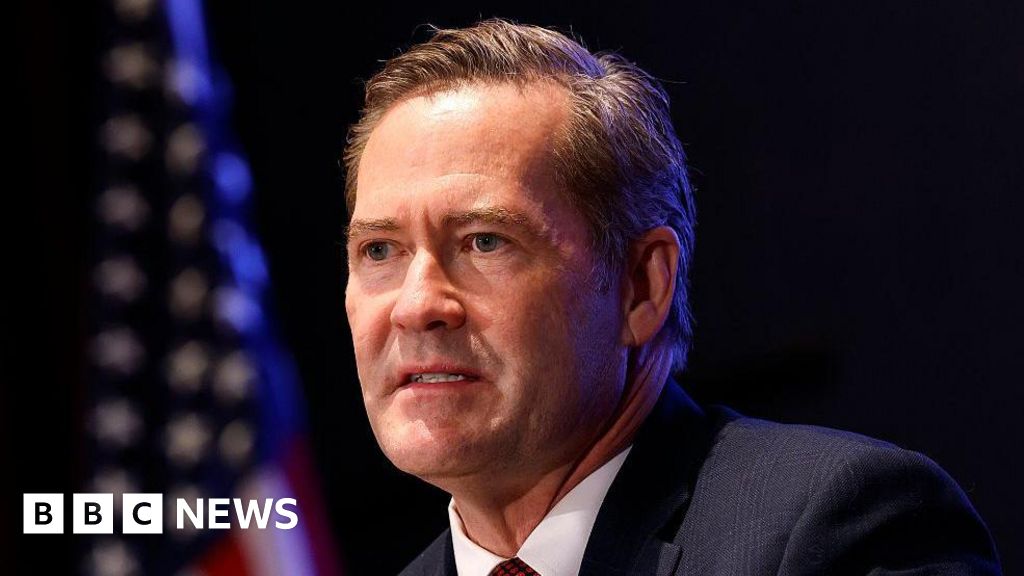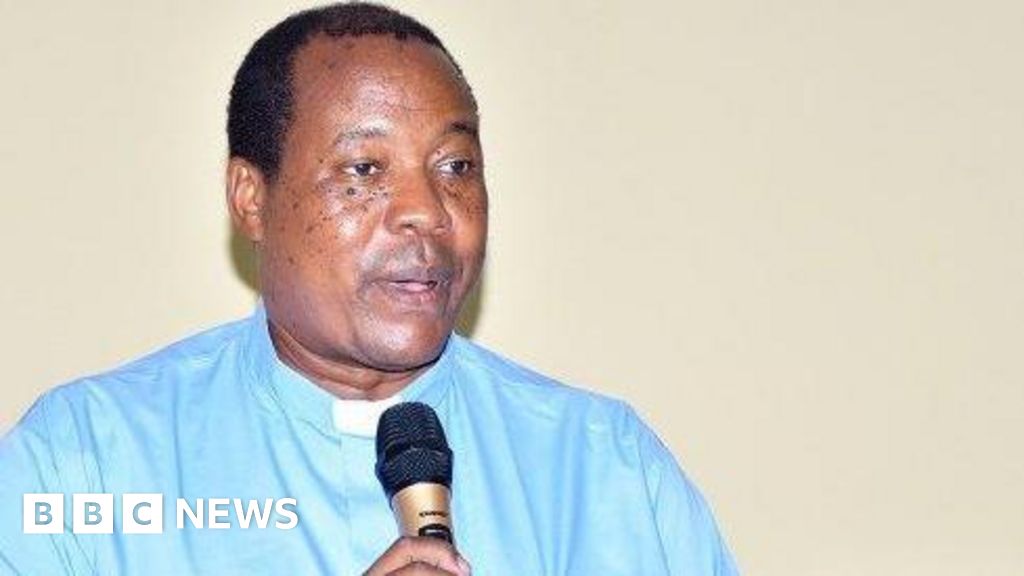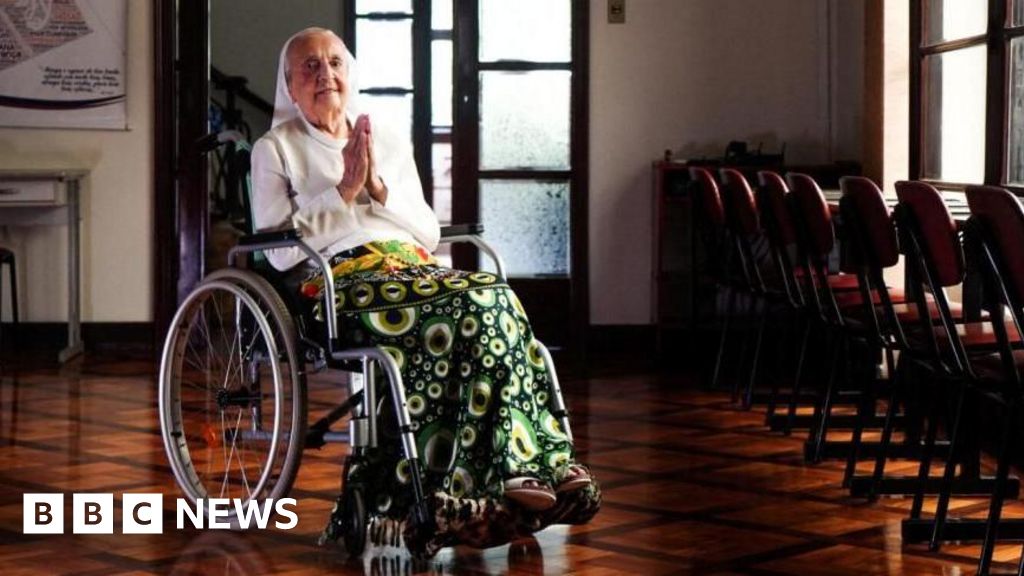ARTICLE AD BOX
By Jane Wakefield
Technology reporter
Image source, Getty Images
Image caption,Wordle demands just a few minutes of people's time each day
Wordle has become an internet phenomenon - without playing by many of the usual digital rules.
Unashamedly simple, web-based rather than an app, and with a creator who did not want it to become addictive - even though many craved more than one puzzle a day - or weighed down by ads or data harvesting, it nevertheless amassed millions of users in just a few months, in part because the answer grids were shareable on social media.
And then, in true internet-hit fashion, it was sold - in this case, for an undisclosed seven-figure sum to the New York Times (NYT).
Devised by Reddit engineer Josh Wardle - to play with his partner, in lockdown - Wordle offers up just one hidden five-letter word each day.
Players enter guesses into a grid.
- If any of the letters are in that day's word but in the wrong place, they turn gold
- If they are in the word in the right place, they turn green
- If they are not in the word, they turn grey
They have all day to guess but only six attempts.
Image source, Getty Images
Image caption,There are only few hints and no real rules
News of the game's sale has left many fans reeling.
Some feel its creator deserves his reward.
"I'm happy for Mr Wordle," one tweeted.
"He made a game for his partner because she loved word games, then he shared it with all of us for nothing.
"Now, he gets a million unexpected dollars - because he loved someone."
'Folks worry'
But many are unconvinced the NYT's promise to keep the game free to play will last long.
Susie Dent, of Channel 4's Countdown programme, hopes it will stay "free and on the web".
But Nick Bowman, associate professor of the creative media industries, at Texas Tech University, told BBC News: "Although the New York Times has pledged that the game will be free, folks worry about what other costs might come up.
"If users have to start sharing data to play the game or if they're required to create usernames and profiles or if the game were to start embedding advertising cookies, I suspect it might lose some of its appeal."
Image source, Getty Images
Image caption,Wordle went from a handful of users to millions in a matter of months
There is no doubting its phenomenal rise.
In October, the Wordle website had 5,000 monthly visits - according to Similarweb - by the end of January, 45 million.
The US, Australia and the UK captured 66% of the traffic, the digital-intelligence platform found, and, on average, users spent over eight minutes on the site - impressive stats for any gaming purchase.
But Prof Bowman said it could yet prove an expensive white elephant for the NYT.
'Underlying itch'
"It's a mistake to presume that Wordle per se is what we want," he said, "and I'm unsure if the game is really designed with sustainability in mind.
"It's a very fun novelty - but there is an underlying itch that the game is scratching that is far more complicated."
And while he is unsure anyone "has a handle on" just what Wordle's secret sauce is, it "probably isn't about the words".
"We have had word-based games for a very long time," Prof Bowman added, "and there is no shortage of casual games on the market."
Part of the reason it has captured imaginations is it has created its own simple universe - and one that is the antithesis of the digital world many inhabit.
Word of mouth played a huge part in its organic and inexorable rise but also the fact it demands very little of its users - just five minutes or so per day, without even requesting they "come back tomorrow", although many do.
And it quickly became a cultural phenomenon - outgrowing its grids to become part of the wider world, as users crocheted its patterns or and saw them in everyday objects.
Its shareability is also key, prompting daily chats among friends and family, who share grids and strategies.
For many, these involve a certain kind of logic - using common vowels or consonants, for example - while others keep spreadsheets to track previously used words.
But ultimately there can be no real failures, because, everyone agrees, a large dose of luck is also involved.
Image source, Getty Images
Image caption,Players can track their performance stats
So the Wordle world is not terribly competitive, although it allows those who care to check their progress and performance stats.
It has had its moments of controversy - including a transatlantic row when one word, "favor", followed the US spelling.
But there were also some heart-warming tales.
The developer behind an app of the same name that was suddenly seeing a spike in downloads contacted Mr Wardle to ask what he should do about the money made from in-app purchases - and together they chose a charity to donate it to.
Mr Wardle himself seems to not be motivated by money.
He refused to do deals with copycat versions keen to make a quick buck.
And Apple even took the unusual step of removing some of them from its App Store.
Good fit
After the purchase was agreed, Mr Wardle revealed the NYT had already played a big part in Wordle's story.
Before he had decided to devise their own game, he and his girlfriend had done the newspaper's crossword, he said, so it was a good fit.
And running the website on his own was becoming "overwhelming".
But it is hard to predict the future of a game that is neither copyrighted nor trademarked.
'Trademark applications'
Many have pointed out similarities with older games, including Jotto, MasterMind and Lingo.
And according to Robert Reading, content-strategy head at intellectual-property analysis company Clarivate, there have been two recent trademark applications for Wordle, covering "software for playing word-puzzle games".
"The applicants - NFT Technology Inc and Monkey Labs Inc - use the same address, in San Francisco," he said, "but it's not clear if they have any connection with the inventor of Wordle, or the New York Times."
Mr Wardle himself told Slate magazine the shareable grids had initially been conceived by a player in New Zealand and added to the game only later.
'Alarming rate'
There are already plenty of copycats and variations.
Sweardle uses a similar principle but for, you guessed it, swear words, while Nerdle is aimed at making maths less "scary" with a mathematical problem to solve each day.
Richard Mann, who created Nerdle, "for a bit of fun", has sympathy for Mr Wardle.
"I can only imagine the daily hosting costs and time commitment," he told BBC News.
"They will have been increasing at an alarming rate and clearly Josh Wardle couldn't run Wordle at a loss forever."
He had "every right" to sell, Mr Mann said, while wondering whether the game's "charm and appeal" would survive the change of ownership.
Left guessing
Now Wordle was in the hands of a commercial organisation, Mr Reading said: "Potential infringers should be more wary than when it was a free website run by an individual who wasn't monetising it.".
And rather than just sitting behind a NYT paywall, it might in future be "licensed to other parties".
Whatever the future holds, fans will have to decide whether they want to remain part of the game.
Those that stay will be left guessing as to what comes next.
And it might not be easily wrapped up in a five-letter word.

 3 years ago
35
3 years ago
35








 English (US) ·
English (US) ·